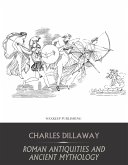In "The Antiquities of Constantinople," Pierre Gilles provides a meticulous and thoughtful exploration of the historical and architectural landmarks of one of the world's most significant cities. Written in the 16th century, Gilles' work is characterized by its vivid descriptions and observational style, blending a Renaissance curiosity with a humanist approach to antiquity. His in-depth analysis is complemented by a rich array of illustrations, which serve to enhance readers' understanding of the complex interplay between history and architecture in Constantinople, invoking a sense of wonder that reflects the transformative spirit of the era. Pierre Gilles, a pioneering figure in the field of archaeology and antiquarian studies, was deeply influenced by the cultural reawakening of the Renaissance and the burgeoning interest in classical antiquities. His travels through the Eastern Mediterranean, coupled with his scholarly disposition, enabled him to document the remnants of a once-great civilization. Gilles' commitment to grounding his observations in a robust historical context is indicative of his broader intellectual pursuits, which sought to bridge the past with contemporary understanding. For readers intrigued by history, architecture, and the evolution of urban spaces, "The Antiquities of Constantinople" offers an indispensable lens through which to explore the rich tapestry of life in a city that has long been a crossroads of cultures. Gilles' work not only enlightens us about the past but also invites contemporary readers to reflect on the enduring legacy of Constantinople in our modern world.
Dieser Download kann aus rechtlichen Gründen nur mit Rechnungsadresse in A, B, BG, CY, CZ, D, DK, EW, E, FIN, F, GR, H, IRL, I, LT, L, LR, M, NL, PL, P, R, S, SLO, SK ausgeliefert werden.









